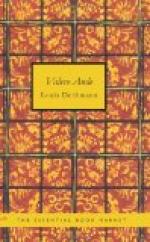THE CONSTITUENT ELEMENTS.
Research in physiological chemistry, has so far determined that there are sixteen definite and discernible elements—and a seventeenth is now in course of determination—which, in their various combinations and aggregations, form the different tissues of which the various organs of the human body are constructed.
The preponderance of one or more of these elements in a certain tissue forms the main or governing feature, or tissue of any organ. Thus the prevalence of potassium phosphate forms the muscle tissue, the prevalence of ammonium phosphate (lecithin) forms the nerve tissue.
For the purpose of general explanation it is sufficient to know that each of the various tissues consist of some of these elements, and that each of the tissues, at whatever part of the body it exists, is affected by the lack of any one of these elements.
The greatest chemist of the age, Justus von Liebig, maintains that if one of the necessary elements in a chemical composition is missing, the rest cannot fulfil their duties, and the consequence of such deficiency is that the cell in question must become diseased and degenerate.
This discovery, known as “the law of the minimum,” has thrown an additional reassuring light upon the practice of the new school of medicine.
To bring to the tissue the lacking constituent element or elements by way of the blood is the only means of regenerating that tissue, that is, of healing its diseased cells.
DYSAEMIA THE CAUSE OF ALL CONSTITUTIONAL DISEASES.
Within the limits of this abstract I do not propose to deal with the disturbances in the system caused by traumatic influences, such as wounds, etc. We are treating only of constitutional diseases which, whether of acute or of chronic character, are all caused by the lack of such chemical elements as described.
It has been shown that the blood supplies all the chemical substances to the different tissues, and that, consequently, it is the lack of these elements in the blood, which causes the tissues to degenerate, or, in other words, the lack of certain chemical elements in the blood is disease.
It is, therefore, merely a question as to which of the elements are missing or which do not exist in correct proportion, that determines the different forms of disease.
When once this fact is established, the method of healing consists mainly in supplying in the regular way, that is, by certain additions to the regular food, the missing chemical elements in organic form; and medical science has but to determine which elements are wanting, and consequently, must be supplied.
It goes without saying that in this system the old, pernicious drug method of filling the body with various poisons to counteract the effects or symptoms of disease, has no place whatever. Certain poisonous drugs may prove effective to suppress certain symptoms by benumbing the nerves and preventing pain; they may, and do counteract the natural process by which nature exercises her power in various ways in the spontaneous effort to throw off disease, in the form of inflammations, fevers or pains; but they can never heal, or eradicate disease.




